We all know that eating whole, natural foods is the best way to fuel our bodies. However, the reality is that many processed food items are filled with ingredients that have little to no nutritional value and can be harmful in the long run. These ingredients may be shared in food products you consider “convenient” or “delicious,” but they could do more harm than good. Here are 10 of the worst offenders that make your food essentially processed garbage.
1. Artificial Sweeteners (Aspartame, Sucralose, etc.)
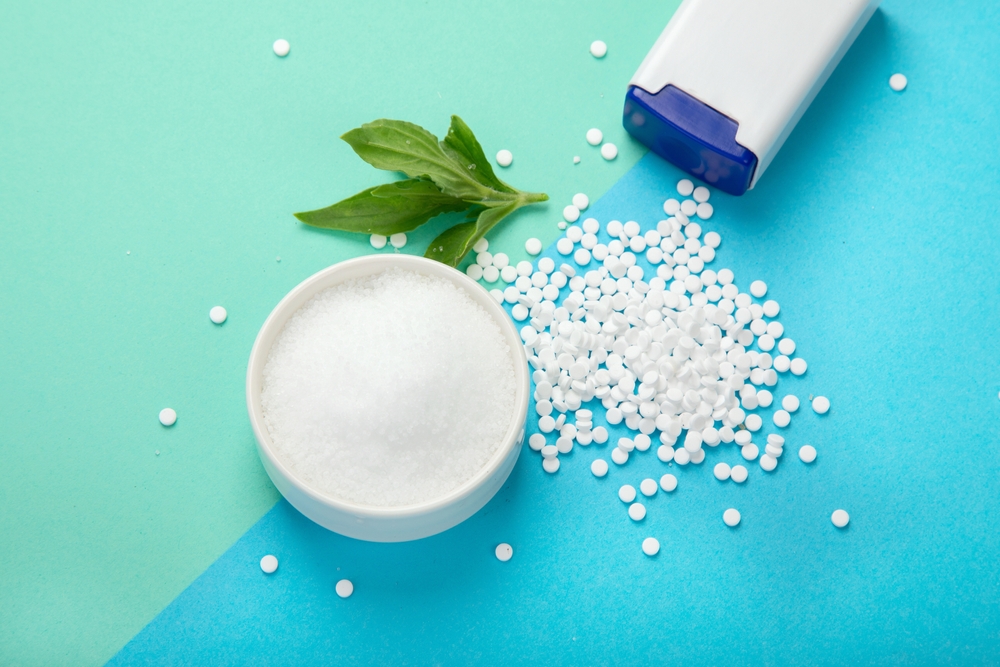
Artificial sweeteners, such as aspartame and sucralose, are used to replace sugar in a variety of foods, especially “diet” products. While they may seem like a healthier alternative to sugar, research has shown they can be detrimental to your health. According to Frontiers in Nutrition, these sweeteners have been linked to negative effects on gut health, appetite regulation, and insulin sensitivity. Additionally, some studies suggest they may increase your cravings for sweet foods, ultimately contributing to unhealthy eating habits.
Beyond that, artificial sweeteners can disrupt the balance of good bacteria in your gut, leading to digestive problems and potentially increasing the risk of chronic diseases. Over time, the consumption of these sweeteners could also lead to a host of metabolic issues, making it harder to maintain a healthy weight and blood sugar levels. They are often hidden in processed “low-calorie” foods, so it’s important to read labels carefully and avoid them whenever possible
2. High-Fructose Corn Syrup (HFCS)
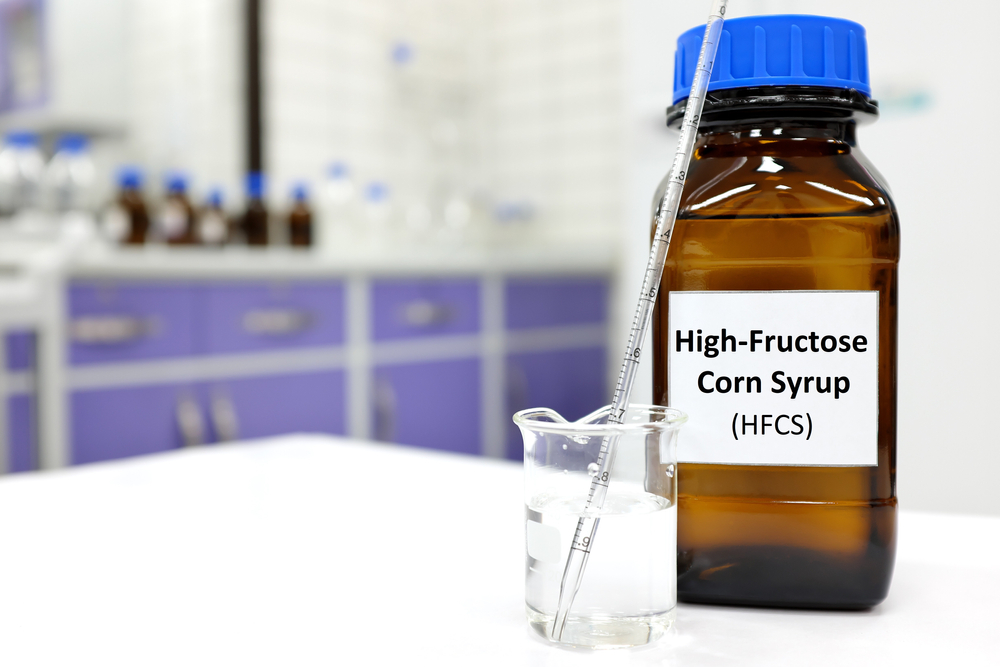
High-fructose corn syrup is a cheap sweetener that is commonly found in sodas, snacks, and processed desserts. It’s often added to food to enhance sweetness and preserve shelf life, but it comes with significant health risks. Overconsumption of HFCS has been linked to obesity, type 2 diabetes, and fatty liver disease. According to Healthline, the body metabolizes HFCS differently than regular sugar, and it has been shown to promote fat accumulation in the liver and lead to insulin resistance.
What’s especially concerning is that HFCS is found in nearly every sugary processed food. It increases your appetite and alters the way your body processes glucose, making it easier to gain weight and harder to lose it. HFCS also contributes to inflammation and can negatively impact cardiovascular health. It’s a key ingredient in many processed foods that does more harm than good, especially when consumed in excess.
3. Trans Fats (Partially Hydrogenated Oils)

Trans fats are created through an industrial process called hydrogenation, which turns healthy oils into solid fats. They are often found in margarine, packaged baked goods, and fried fast food. According to Healthline, trans fats are notorious for raising LDL (bad) cholesterol levels and lowering HDL (good) cholesterol, contributing to an increased risk of heart disease. Even small amounts of trans fats can lead to long-term health problems such as cardiovascular disease and inflammation.
What makes trans fats even worse is that they’re often hidden in processed foods, even those marketed as “low-fat.” Manufacturers use trans fats because they improve texture and shelf life, but the health costs are steep. Consuming trans fats regularly can also impair your body’s ability to process fat and increase your overall fat storage. Avoiding trans fats is crucial for long-term heart health and overall well-being.
4. Sodium Nitrite and Nitrate
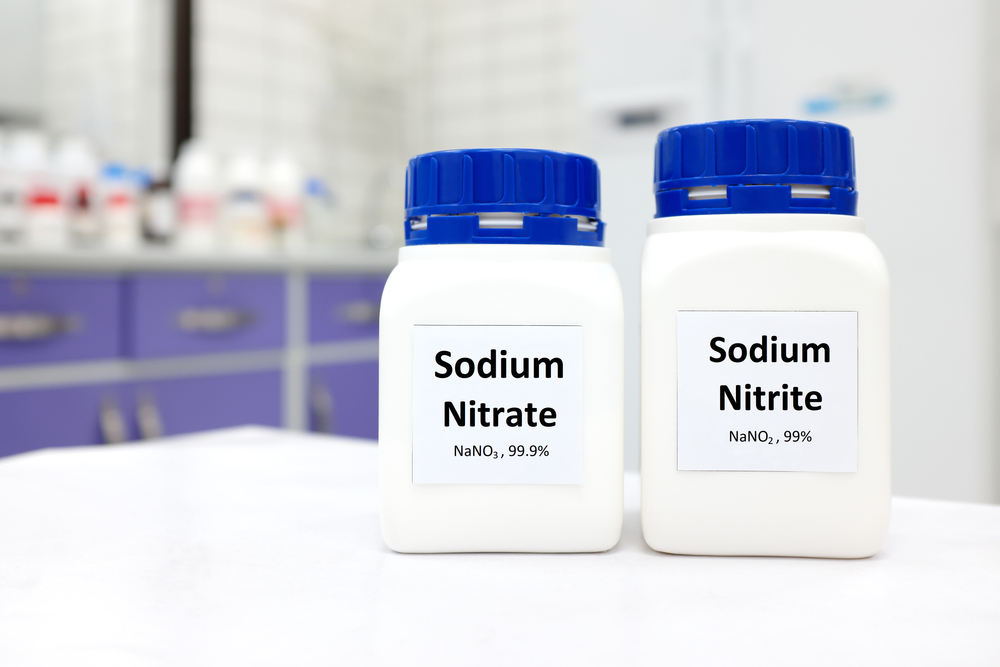
Sodium nitrite and nitrate are preservatives often used in processed meats like bacon, sausages, and hot dogs. These chemicals prevent bacterial growth and give processed meats their distinctive pink color. According to MedicineNet, when consumed regularly, sodium nitrite and nitrate have been linked to an increased risk of cancer, particularly colorectal cancer. The body converts these compounds into nitrosamines, which are carcinogenic and have been shown to damage DNA.
What’s concerning is that these chemicals are present in many deli meats and packaged snacks, meaning they are easy to consume regularly. Even small amounts over time can accumulate and contribute to long-term health risks. Choosing fresh, unprocessed meats or plant-based protein sources is the safest option when looking to avoid these harmful additives. Nitrite and nitrate consumption is just one more reason to reduce processed meat intake.
5. Artificial Colors and Dyes (Red 40, Yellow 5, etc.)
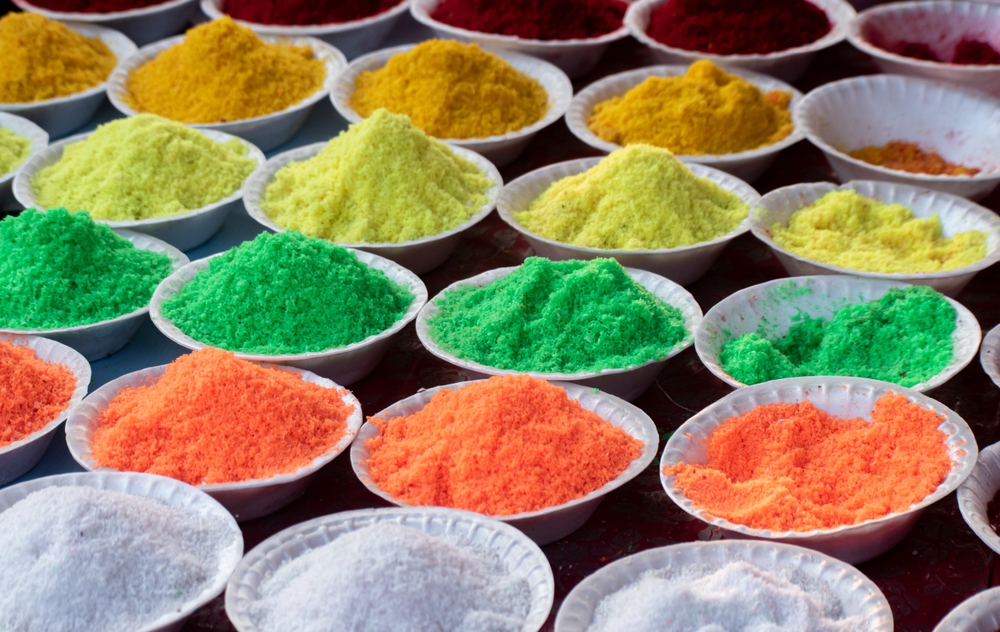
Artificial food colors and dyes, like Red 40 and Yellow 5, are used to make processed foods more visually appealing. While they may make a product look more enticing, these synthetic colors are often derived from petroleum and have been linked to allergic reactions, hyperactivity, and even cancer. The potential health risks associated with these dyes have led many countries to ban or restrict their use, but they’re still prevalent in many processed foods in the U.S.
What’s particularly troubling is that food dyes are often used in products marketed to children, even though research suggests they may affect behavior and cognitive function. Over time, exposure to these chemicals can lead to long-term health problems, particularly when consumed in large quantities. Opting for naturally colored foods or products with no added dyes is a healthier choice for your body and mind.
6. Monosodium Glutamate (MSG)
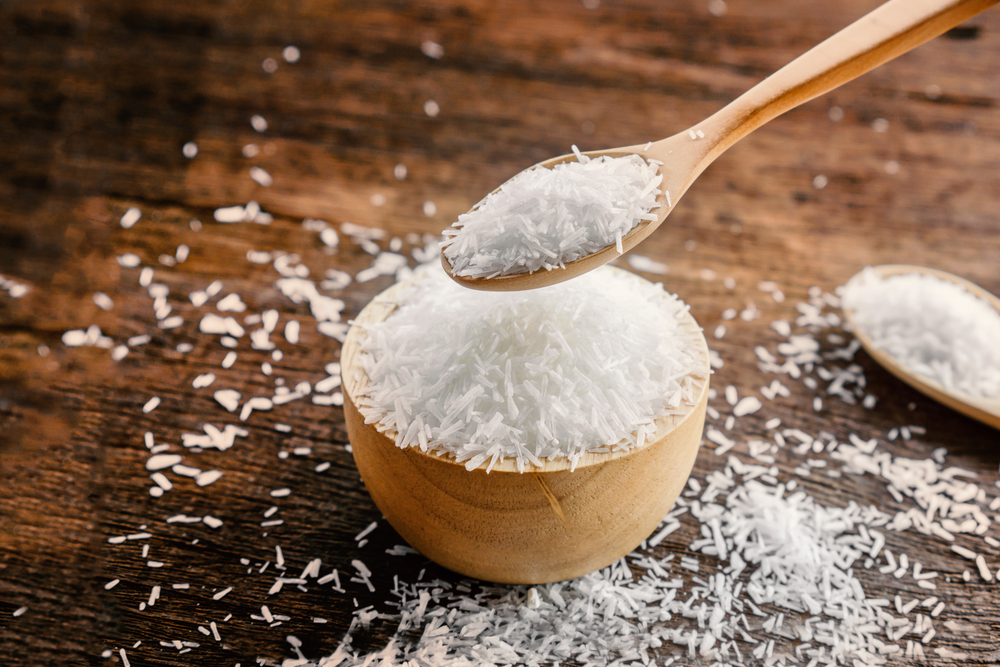
Monosodium glutamate (MSG) is a flavor enhancer commonly found in processed snacks, canned soups, and fast food. While MSG is recognized as generally safe by health authorities, many people report adverse reactions to it, including headaches, sweating, and numbness. Some studies also suggest that MSG can contribute to obesity and metabolic syndrome by altering the way the brain regulates appetite and fat storage.
What makes MSG even more concerning is its widespread use in processed foods, making it difficult to avoid. It’s also added to foods under different names, such as “hydrolyzed vegetable protein,” which makes it harder for consumers to know what they’re eating. Reducing the consumption of MSG-laden processed foods can help prevent unwanted side effects and promote overall health. Opting for whole, fresh foods is a much safer and healthier choice.
7. High-Sodium Ingredients

Excessive sodium is one of the biggest health risks associated with processed foods. It’s often added to snacks, canned soups, frozen meals, and condiments to enhance flavor and preserve the product. High sodium intake is directly linked to high blood pressure, heart disease, and kidney damage. Consuming too much sodium also places unnecessary strain on the body’s cardiovascular system, leading to long-term health problems.
What’s surprising is that even seemingly healthy products, such as salad dressings or canned vegetables, can contain high levels of sodium. The recommended daily intake of sodium is around 2,300 mg, but many processed foods far exceed this amount in just one serving. Always check the label for sodium content and choose lower-sodium options to protect your heart and kidney health.
8. Carrageenan

Carrageenan is a thickening agent derived from seaweed and commonly used in dairy products, plant-based milk, and processed meats. While it’s considered safe by the FDA, some studies have shown that carrageenan can cause inflammation, and digestive issues, and even contribute to the development of colon cancer in animals. It has been linked to bloating, diarrhea, and other gastrointestinal problems in sensitive individuals.
For people with digestive sensitivities, carrageenan may exacerbate conditions like irritable bowel syndrome (IBS). Given its potential negative effects on gut health, it’s best to avoid processed foods containing carrageenan. Opting for unprocessed alternatives like whole plant-based milk or dairy products without added stabilizers can help maintain digestive health.
9. Propylene Glycol
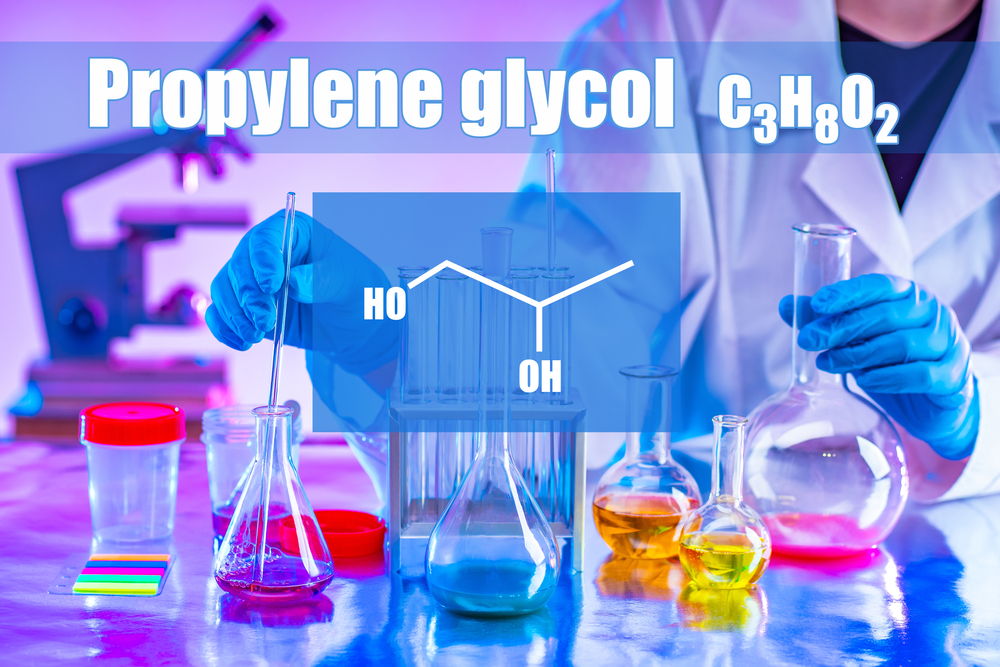
Propylene glycol is a synthetic additive used to retain moisture in processed foods and enhance texture. It’s often found in salad dressings, ice cream, and baked goods. While it’s generally recognized as safe in small amounts, excessive consumption of propylene glycol has been linked to gastrointestinal issues, skin irritation, and even organ toxicity. In some cases, it can also affect your body’s ability to absorb nutrients properly.
Even though propylene glycol is considered a low-risk additive by regulatory agencies, overuse in processed foods is concerning. Its potential impact on the liver and kidneys, particularly when consumed in high quantities, makes it an ingredient to avoid. Many individuals may not realize they are consuming propylene glycol regularly, so it’s important to limit processed food intake and choose natural alternatives whenever possible.
10. BHA and BHT (Butylated Hydroxyanisole and Butylated HydroxyToluene)
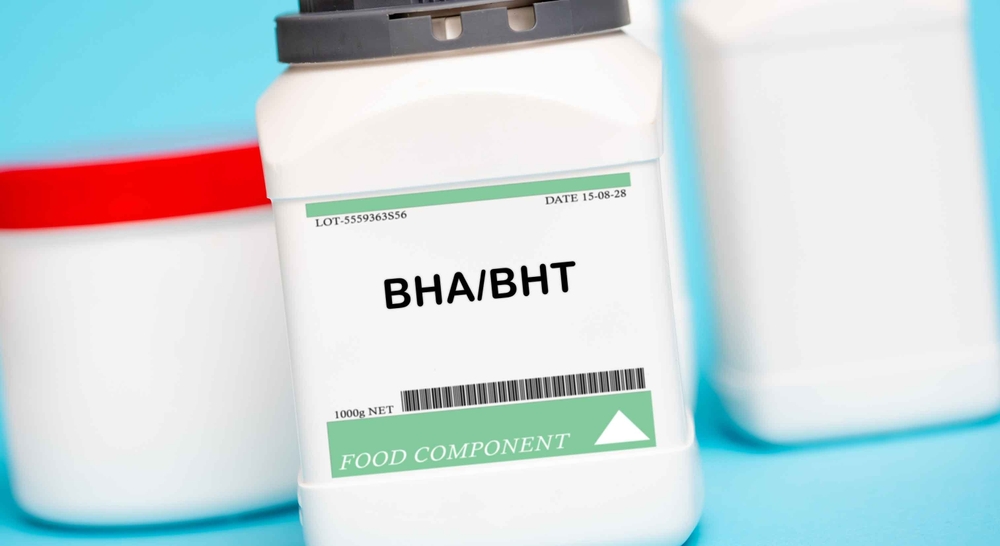
BHA and BHT are artificial preservatives used in processed foods to prevent fats from becoming rancid and to extend shelf life. These chemicals are often found in snacks, cereals, and packaged baked goods. Long-term consumption of BHA and BHT has been linked to cancer, liver damage, and hormone disruption. Though they are approved for use in food, their potential health risks cannot be ignored.
What’s concerning is that BHA and BHT have been shown to disrupt the endocrine system, which can lead to fertility issues and other hormonal imbalances. The accumulation of these chemicals over time can contribute to significant long-term health problems, including increased cancer risk. To avoid these risks, it’s best to limit processed food consumption and choose fresher, minimally processed options.

Abisola is a communication specialist with a background in language studies and project management. She believes in the power of words to effectively connect with her audience and address their needs. With her strong foundation in both language and project management, she crafts messages that are not only clear and engaging but also aligned with strategic goals. Whether through content creation, storytelling, or communication planning, Abisola uses her expertise to ensure that her messages resonate and deliver lasting value to her audience.


